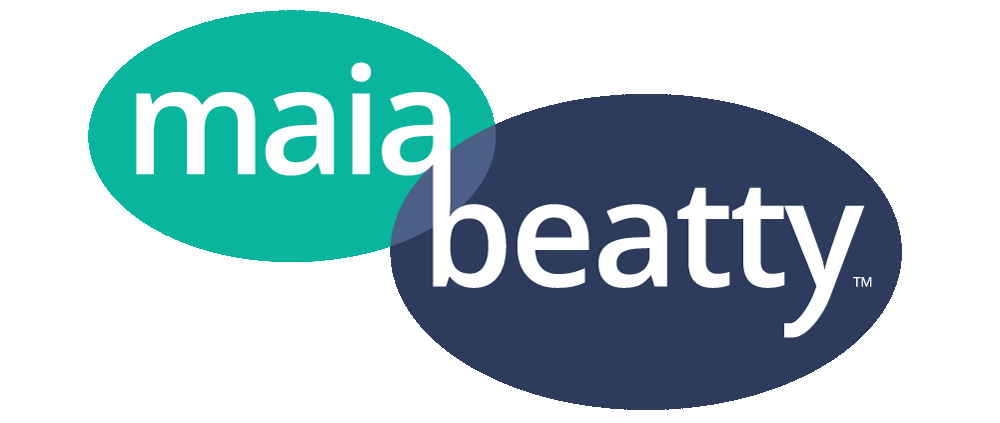You know that feeling you get when you’re trying to stop doing something that no longer works for you so you can start doing something different—and it just seems so big that you go right back to doing what you were doing before, because it’s so much easier?
I know. Me, too.
Last week I got such a wide range of feedback on our Playbook that I thought it would be fun to slow down for a moment and really unpack the practical details of “Stop Chasing” and “Stop Escaping” so you can see it at work in your own world.
Meanwhile, I have to admit right up front that I felt such relief when I discovered how to practice those two strategies that it’s been a huge FULL STOP for both chasing and escaping in my world right now.
It’s also true that I’m still in process with this stuff myself—so I have no clue about what I want to START DOING about it. That leaves me simply standing on the Shores of Emptiness and staying STILL until I can feel what I need to do next.
You might be at a different place—so I’m thinking it might be fun to go behind the scenes to see what I learned along the way to my current practice of standing still…
STOP Chasing
Yes. It’s true that I have been a Champion Chaser for much of my life. If Chasing were an Olympic Sport, I would get the GOLD.
The idea that this behavior doesn’t serve me is very new—and it took me really looking at it in detail to recognize how much I’m leaving on the table when I’m chasing. Me being me, I’ve broken it down into three parts so you can see it too. When I’m chasing:
- I’m running after something that is moving (at whatever speed) AWAY from me.
- Even if I catch it, it’s never gonna STAY (because it’s moving AWAY from me).
- It also means that I’m not available for the people/things I already have—or the people/things that are MOVING TOWARDS ME.
Seeing those three pieces stopped me in my tracks. Recognizing them helped me to uncover the fact that it has long been my instinct to chase (for loads of unhelpful reasons that will make a lot more sense when we unpack “gaslighting” next week).
STOP Escaping
Yes. It’s also true that I have been an Olympic Gold Level Escape Artist for much of my life: first on the inside (escaping into the pages of a book or into the screen of a movie) and later on the outside (my escape from home as a 17-year-old left me pretty fearless to leave anyone and anything).
Breaking down what I’ve discovered about my escape habit into the following three parts has been truly sobering. See what you think.
When I’m escaping:
- I’m no longer available to learn anything from my circumstances. Wherever I go, I take all that unfinished business with me.
- I’m never able to fully commit—because I always have one foot out the door.
- I’m never able to rest or relax because I’m always ready to run.
Seeing all those pieces made me want to stand still and DEEPLY EXHALE. Holy CRAP! I had no idea what all my escaping was costing me. So the idea of “standing on the shores of Emptiness” actually came as a relief—and even though I had never stood that still in my entire life, I was willing to give it a chance.
What Does Gaslighting Have To Do With Alla This?
Last week I shared my physical response to watching a character in a show get gaslit by his boss. That was the boss’s practice of systematically crushing the guy’s spirit so subtly and insidiously that it became normal for the guy to doubt himself so deeply that he was ready to take his own life.
Watching the show, you can see that the boss was making up a load of crap about the guy—it’s clear to the viewer that the bosses’ comments have no actual basis in truth.
The violence of gaslighting is that it turns lies
into the truth for the victim.
into the truth for the victim.
Now let’s add gaslighting to the conversation we’re having about Chasing and Escaping.
What lies have we been told that compel us to chase what is moving away from us? And what lies have we been told that compel us to escape our circumstances so quickly that we can’t learn anything—and what’s worse—be doomed to repeat our mistakes over and over and over?
We’ll take a deeper dive into gaslighting next week. For now, I invite you to poke around in your experience and see how you feel about what you’ve just read.
- What connections can you make between my experiences of “chasing” and your own? Feel free to stop anything that is no longer fun for you.
- What connections can you make between my experiences of “escaping” and your own? Feel free to stop anything that is no longer fun for you.
- And for the Big Win: Consider what kind of lies you would have to believe for chasing and escaping to be the right answer for you. All you have to do when you find one is question it. Simply doubting something negative about yourself that you have believed for a long time will instantly shift your experience. (We will take a deeper dive on this idea next week!)
Thank you so much for sharing this journey with me. If you know someone who would benefit from reading this Playbook—and having access to all the other issues—please forward this email! It’s always free and you can unsubscribe at any time.
